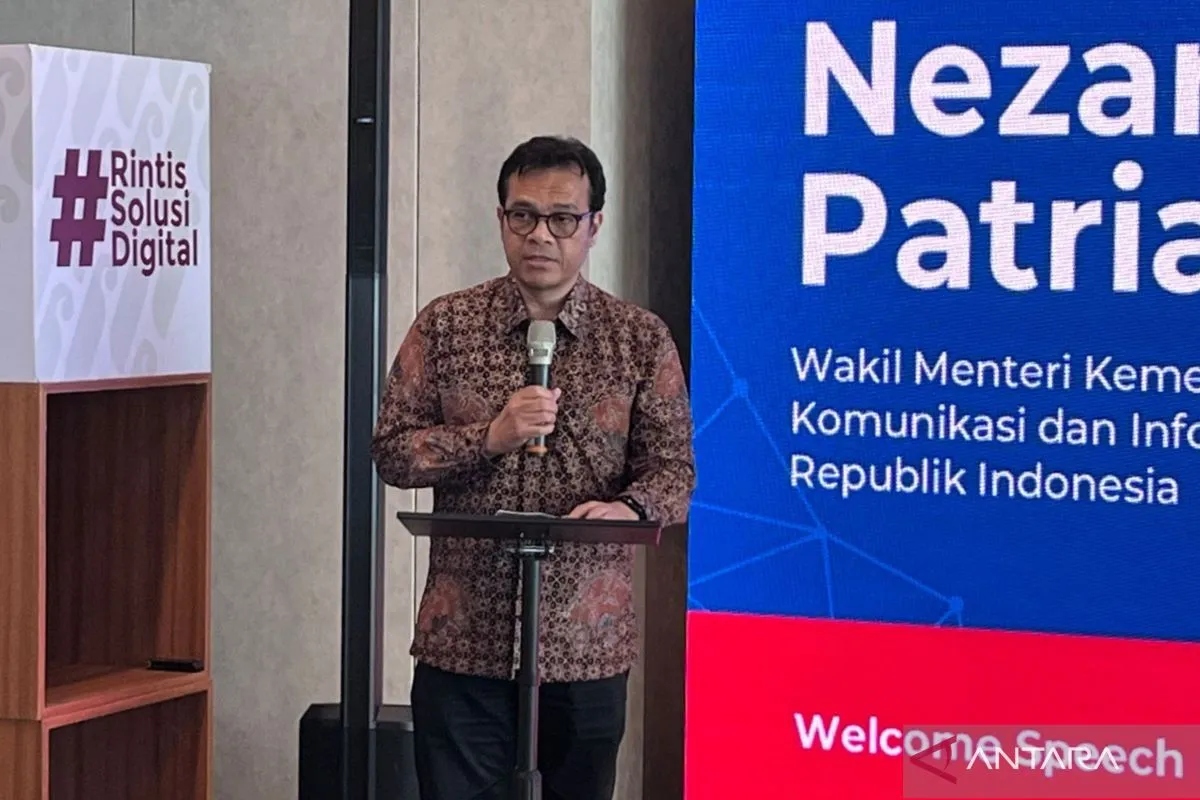
|
Getting your Trinity Audio player ready...
|
The intersection of technology and sustainability has become increasingly critical in the rapidly evolving digital era. The Vice Ministry of Communication and Informatics, Nezar Patria, has underscored the pivotal role of green technology in fostering sustainability and addressing environmental challenges.

Nezar highlighted the dual perspectives from which the growth and development of technology can be viewed: digitalisation for sustainability and sustainable digitalisation. This approach not only aims to utilise digital technology to combat environmental challenges but also focuses on creating and utilising digital technology in alignment with sustainability principles.
The global green technology and sustainability market is projected to reach a staggering US$62 billion by 2030, with the total global investment in energy transition marked at US$1.78 trillion in 2023. This significant investment underscores the optimism surrounding digitalisation’s role in global decarbonisation efforts, potentially reducing CO2 emissions by 35% over the next decade.
For developing countries like Indonesia, green technology presents a pathway to implement sustainability principles, offering myriad opportunities ranging from decarbonisation through a 20% reduction in CO2 emissions via information and communication technology (ICT) across various sectors, to dematerialisation, which could decrease material use in products by up to 90% through digital technology and design. Furthermore, detoxification efforts facilitated by better design and resource management could significantly reduce waste in the production chain by 10 to 100 times.
Despite the optimistic outlook and promising prospects, Nezar highlighted significant challenges in implementing sustainability principles across various sectors. Among these hurdles, the accessibility of sustainable solutions stands out as a primary concern. This encompasses the availability of green technologies and resources and the knowledge and expertise required to implement them effectively.
Moreover, Nezar delved into the complexities of social and economic inequality, underscoring how these disparities play a crucial role in hindering the adoption of sustainable practices. For instance, the uneven distribution of wealth and resources means that not all communities or individuals have the same opportunity or capacity to engage with or benefit from sustainable solutions. This imbalance can exacerbate existing environmental issues and stall progress towards a more sustainable future.
Another critical challenge Nezar pointed out is the need for robust green technology regulations. Without stringent policies and standards to guide the development, deployment, and usage of green technologies, there is a risk of market distortions. Such distortions can lead to the inefficient allocation of resources, where environmentally harmful practices might continue to thrive due to a lack of regulation or incentives for greener alternatives, leading to further environmental degradation.
In light of these challenges, the government has remained active. Recognising the urgent need for action, it has demonstrated a firm commitment to fostering the development of environmentally friendly infrastructure as a cornerstone of its sustainability strategy. A prime example of this commitment is the construction of the National Data Centre in Cikarang. This project is a testament to the government’s dedication to integrating sustainability into its operations.
The Data Centre has been awarded the prestigious Green Data Centre Certification by the Green Building Council Indonesia, signifying its adherence to stringent environmental standards and its role in setting a benchmark for sustainable infrastructure development in the region.
Moreover, Nezar also appreciated initiatives by the British Embassy Jakarta and social enterprises to empower Indonesia’s green technology landscape. He emphasised the importance of these initiatives in facilitating technology and knowledge transfer between global and Indonesian green tech players, fostering innovation to combat the climate crisis, and developing similar initiatives to further collaboration and innovation in addressing urgent social issues.
A notable collaboration between the UK-Indonesia Tech Hub, the Ministry of Communication and Information Technology and social enterprise has led to the launch of a pilot programme, the Digital Hub: UK-Indonesia Tech Hub x MARKAS.
This programme leverages existing digital hubs across various Indonesian cities, focusing on supporting existing digital businesses and developing digital talent through programmes like the Hatch x PEDE Incubation Programme in Surabaya and Bali. These initiatives aim to enhance digital skills among digital talents, showcasing a concerted effort to integrate digital technology with sustainability goals.
















